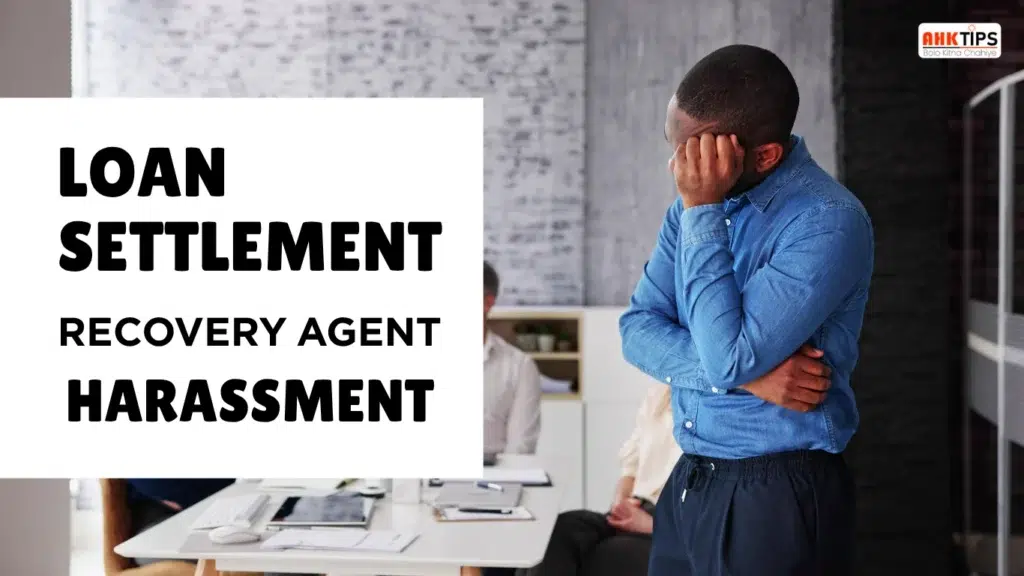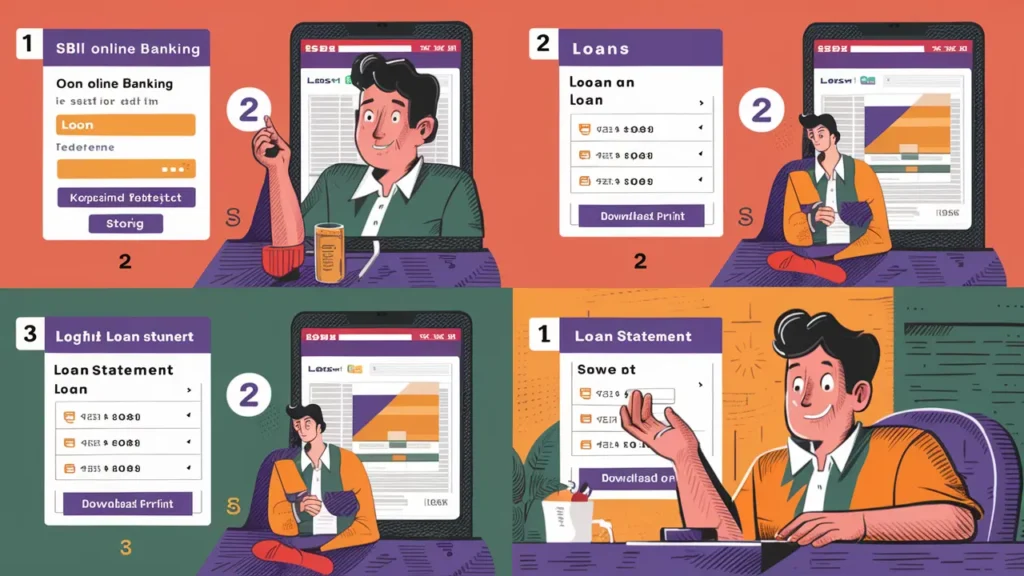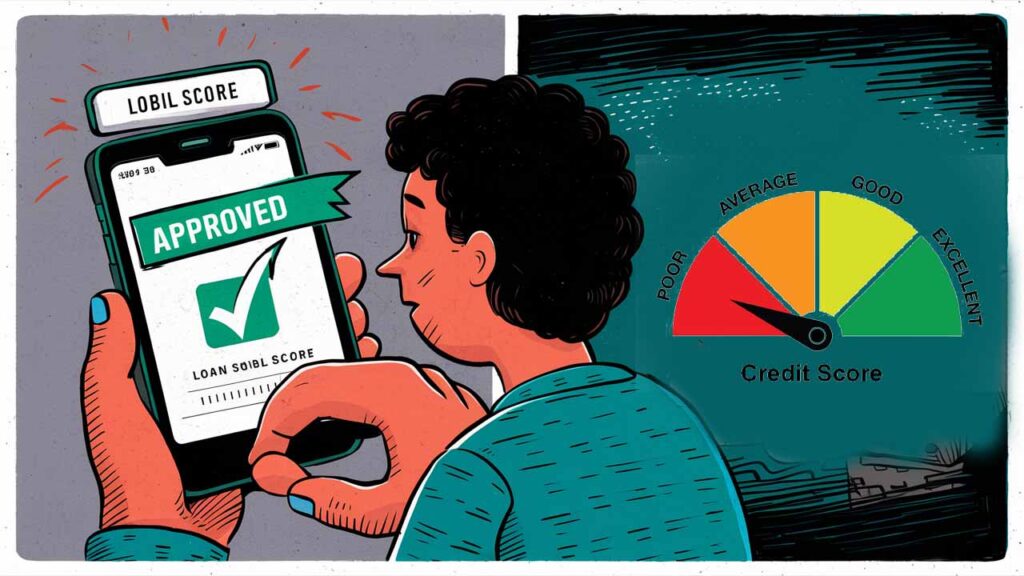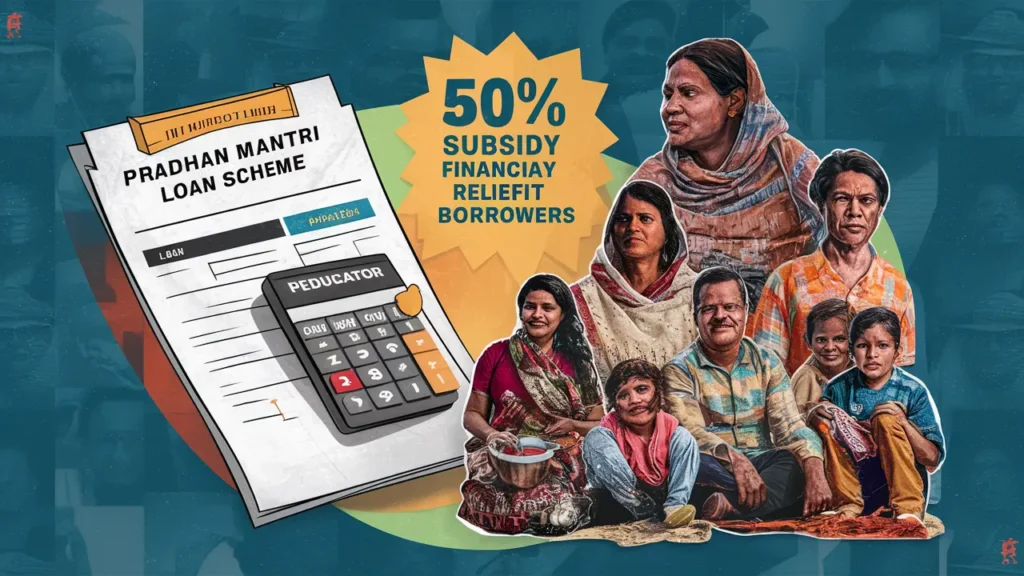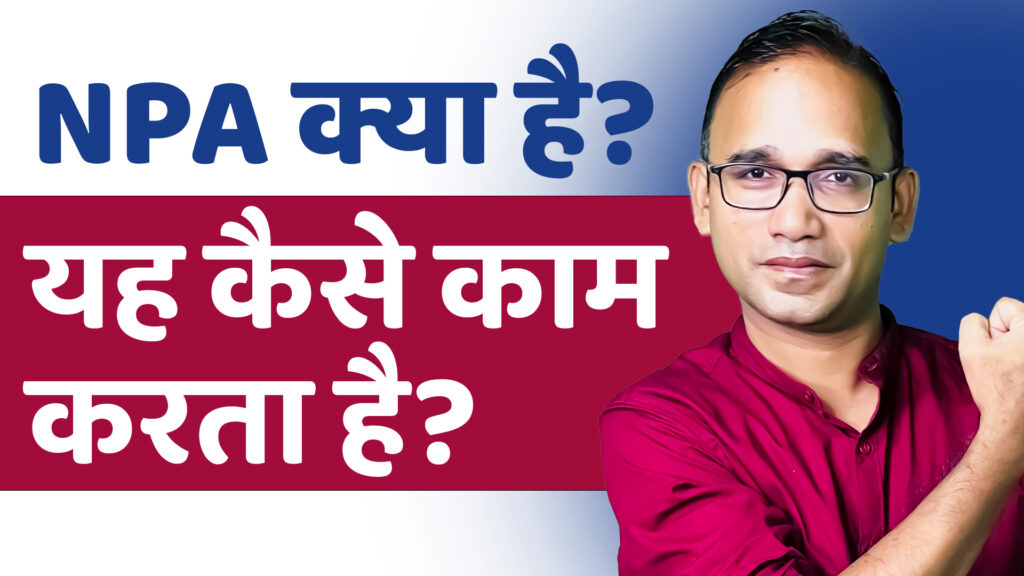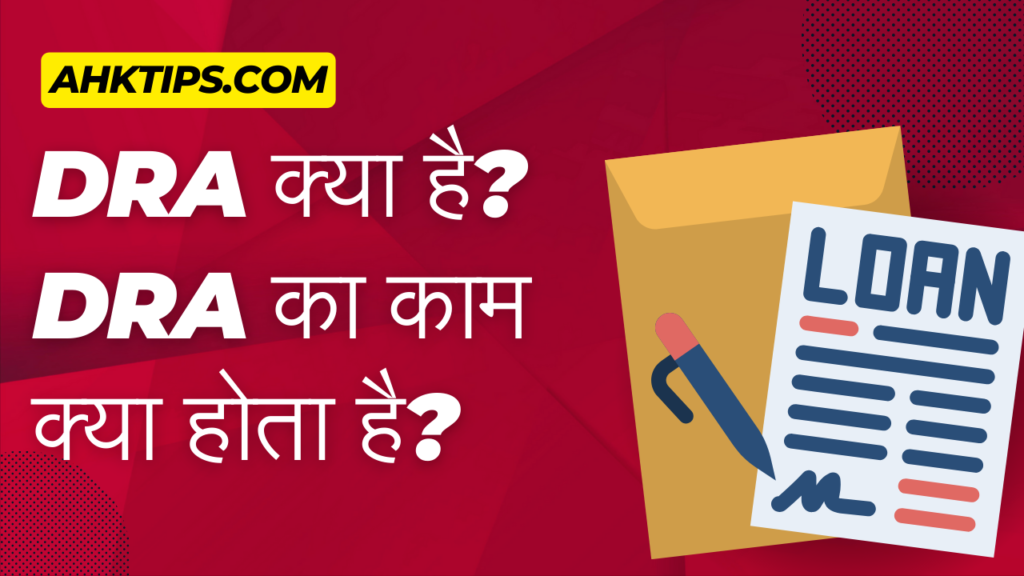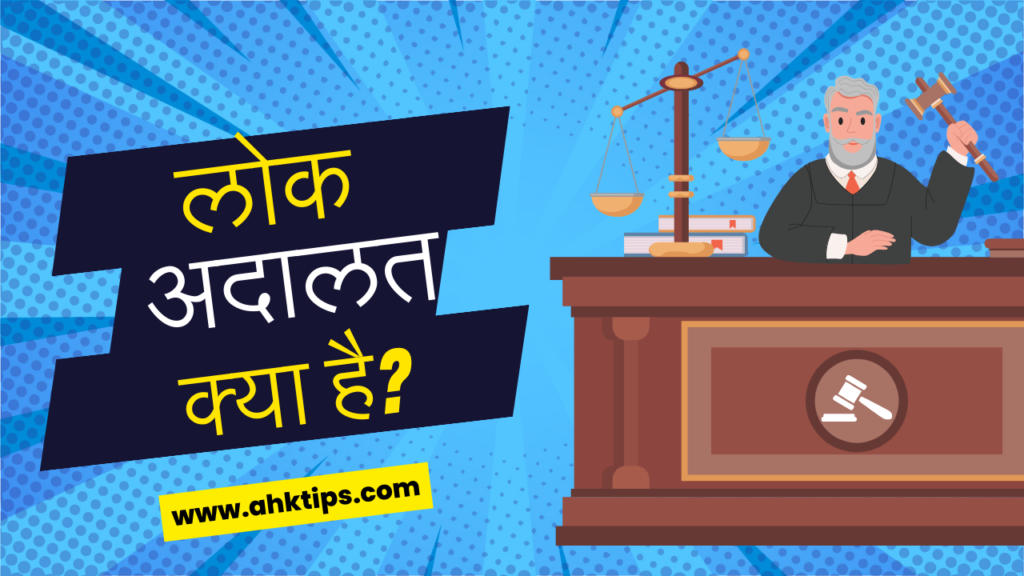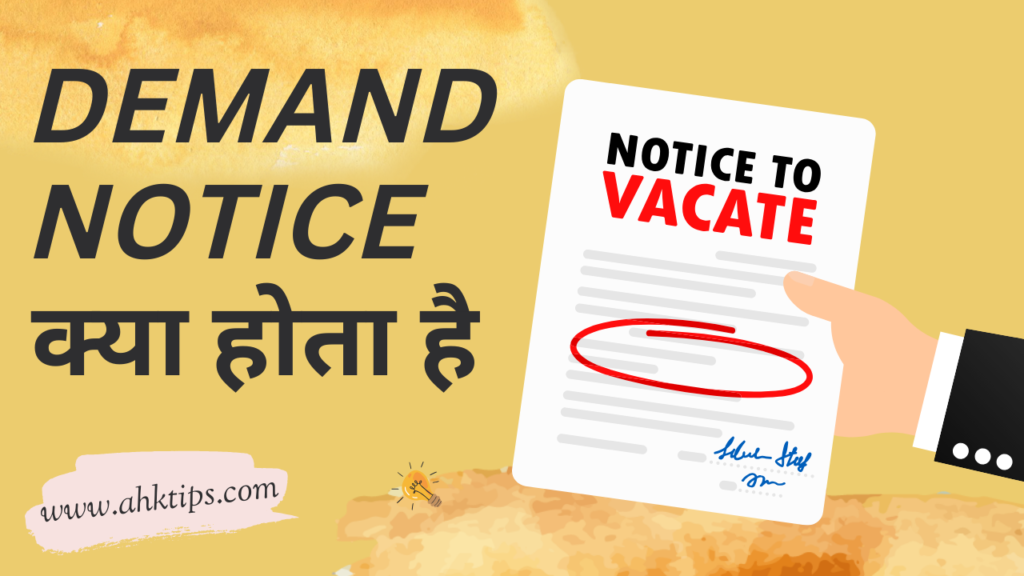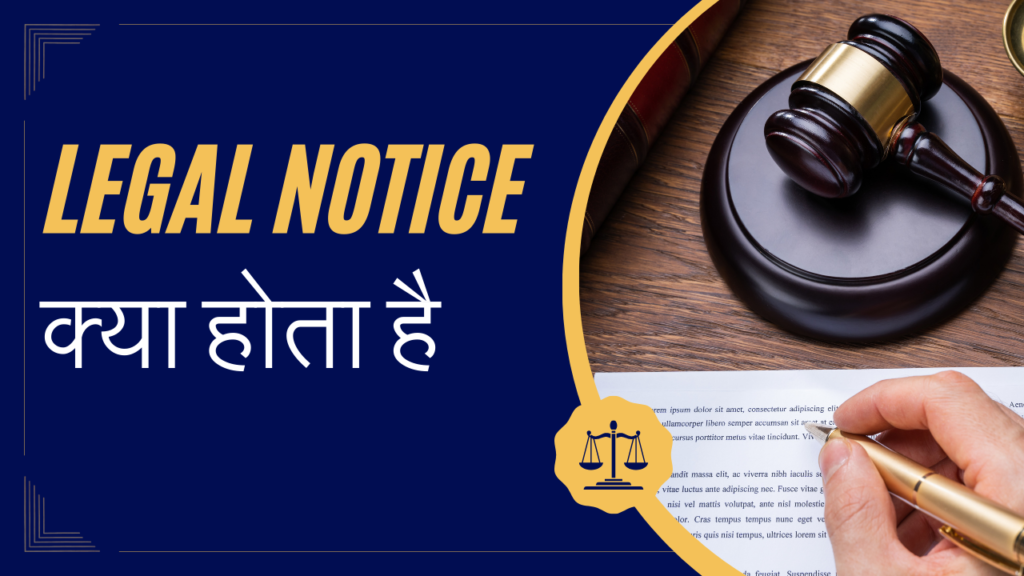Summary
Loan settlement recovery agent harassment can be stressful when agents threaten, abuse, or come to your home at odd times. Most of the borrowers who are facing financial struggles suffer the same. Fortunately, you have protection under the laws. The Reserve Bank of India (RBI), the Indian Penal Code (IPC), and the Consumer Protection Act all protect you.
Recovery agents have to abide by guidelines, like making calls only between 7 AM and 7 PM and being courteous. Borrowers are entitled to privacy, reasonable treatment, and access to legal assistance. If you are being harassed, document every contact, register a complaint with the bank, write to the RBI Ombudsman, and seek assistance from the police or consumer court if necessary. The best way to put an end to harassment and ensure your financial well-being, privacy, and mental health is to be aware of your rights and act promptly.
How to Deal with Loan Settlement Recovery Agent Harassment: Know Your Legal Rights
It can be hard to deal with recovery agents who contact or visit you all the time, especially when it turns into harassment. You’re not the only one who is being harassed by a loan settlement recovery agency. When people miss payments because of things they can’t control, such as losing their job, becoming sick, or having money problems, they are in a similar situation to many other debtors around the country. The good news is that some laws and rules safeguard you.
What is Loan Settlement Recovery Agent Harassment?
Loan settlement recovery agent harassment includes many actions. They may call you at odd hours, threaten court action, or visit your home or business repeatedly. They might also use abusive language. It can also mean embarrassing someone in public. It might involve getting neighbours or family members involved. Pressure techniques can force borrowers to pay, even when they are trying to repay the loan.
Legal Framework That Protects You
Borrowers have rights under the law, and the Reserve Bank of India (RBI) has put forth a number of rules to protect them from unjust recovery methods.
RBI Guidelines on Recovery Agents
The Reserve Bank of India has made it very clear what banks and other financial institutions must do when they use recovery agents. These rules must be followed:
- They must always maintain dignity and privacy.
- There is no room for threats, abuse, or intimidation under any circumstances.
- Recovery agents need to have the right ID and letters of authority.
- For openness, it is recommended that encounters be recorded on audio or video.
- If these rules are broken, you can tell the lender and the police about the behaviour.
Indian Penal Code (IPC) Protections
The IPC says that verbal abuse, physical threats, and mental harassment can be crimes. These may include criminal intimidation or defamation. A borrower can call the police if a recovery agency acts violently or wrongly. They can also take legal action.
Consumer Protection Act
The Consumer Protection Act says that unjust recovery techniques are a lack of service. If you’ve faced harassment or unethical money collection, you can file a complaint with the consumer forum. This is against the financial institution or its agents.
What You Can Do if Harassed by Recovery Agents
If recovery agents are bothering you, it’s crucial to be cool and know your rights. Here are the best ways to deal with the problem and be safe in the eyes of the law.
Document All Communication
Make a note of every call, message, or visit the recovery agent makes. This comprises the time, date, and type of interaction. If you can, write down what you say or record phone calls. Keep communications and any written interactions as proof. If you decide to make a complaint, this paperwork can help your case.
File a Complaint With the Bank or NBFC
Always start by formally complaining to the bank or financial organisation that hired the recovery agent. Give the time, date, and details of the harassment, and ask for written proof of your complaint. Most schools and colleges have a way to deal with complaints like these.
Escalate to the RBI Ombudsman
If the bank doesn’t fix your problem or keeps bothering you, you can go to the Banking Ombudsman under the RBI. The Ombudsman can investigate the situation and take action against the bank or its employees. This service is free for all bank customers.
Lodge a Police Complaint
You can call the police if the recovery agent threatens you, abuses you, or keeps coming to your home or business. It’s crucial to be explicit about what’s going on and show whatever proof you have, like call logs or messages.
Approach the Consumer Court
You can go to the consumer forum if the harassment harms your mental health or hurts your reputation. The court might tell the bank to pay damages and stop the harassment. This is especially helpful if you tried to work things out with the bank directly but didn’t get any help.
Rights You Must Be Aware Of
Being aware is the best way to protect yourself from recovery agent harassment. If a loan settlement recovery agency bothers you, know your rights. This way, you can respond confidently and legally.
Right to Privacy
You have the right to be treated with respect. Agents can’t call your friends, family, or coworkers to embarrass or pressure you. It is against the law for the lender to do this, and it is also a violation of your privacy.
Right to Fair Treatment
Agents can’t call you names, threaten you, or make you feel bad. They can’t use bad language or make you feel scared by putting pressure on you. If this happens, you should tell someone right away.
Right to Settle
You might ask for a debt settlement if you are having trouble with money. This means talking to the bank about closing the loan for less money. The bank must respond to your request. It can’t deny it without reviewing your financial situation.
Right to Legal Assistance
If someone is bothering you, you can talk to a lawyer. You can send legal notices to the bank or the people who are trying to get your money back. Courts view this type of harassment as serious. This is especially true if the borrower is cooperating or has proposed a settlement.
How to Communicate With the Bank
It’s never okay to harass someone, but you should still keep in touch with the lender. Write a letter to the bank. Explain your situation and request a formal settlement process. Clearly state that you can’t pay back the full loan and suggest a settlement sum or a change to the EMI. Don’t talk to recovery agents directly; instead, keep all communication in writing.
When to Consider a Legal Loan Settlement
A loan settlement is an option if you can’t pay back the full amount and want to end the situation legally. This entails talking to the bank about a lump-sum payment to pay off the debt for less. It could hurt your credit score, but it prevents recovery agent harassment and lawsuits against you.
Talk directly to the bank’s settlement or collection department. Be honest about your financial situation. If you agree, make sure to receive a “no dues certificate” after you pay the agreed-upon amount. This keeps you safe from future claims.
Final Thoughts on Protecting Yourself
It’s hard to be in debt, but no one should harass or hurt others because of it. Laws are in place to ensure that lenders handle borrowers fairly and respectfully. If a loan settlement recovery agency is bothering you, protect your rights. Get legal help if needed. The greatest approach to get your life back on track is to stay informed and do the right thing.
Top 5 Signs of Illegal Recovery Agent Harassment During Loan Settlements
If borrowers miss payments or choose a loan settlement, recovery agents may collect the debt. Banks and financial institutions can collect what they are owed. However, some actions may be seen as harassment. Know the signs of harassment by recovery agents. This helps protect your rights and ensures you can respond properly.
Understanding Recovery Agent Harassment
Banks and NBFCs often hire recovery agents to chase unpaid debts. But not all agents do what the law says. Many people who owe money feel pressured, threatened, or shamed when they try to settle their debts. The Reserve Bank of India has clearly stated what is allowed. Still, some people break the rules. This often happens when borrowers are unaware of their rights.
Harassment can be mental, verbal, or physical. It happens a lot when the borrower is already stressed out about money and their mental health. This makes it even more vital to spot the warning symptoms early and do something about them.
Sign of Harassment: Repeated and Unusual Calling Hours
Agents that collect debts can call borrowers, but not at any time of the day or night. The Reserve Bank of India has made it plain that recovery agents can only call people between 7 AM and 7 PM. Calls that happen outside of this time window are seen as intrusive and against the law.
If you get calls late at night, early in the morning, or all day long, this could be harassment. If someone continues to call you after you’ve explained or asked for time, that’s a clear violation. Some agents use multiple numbers or unknown caller IDs to bypass call blocks. This makes the situation worse. This behaviour is not only wrong, but it also goes against the rules.
Sign of Harassment: Threats of Legal or Physical Action
One of the worst things loan recovery agents can do is threaten people to pay back their loans. This could mean threats of arrest, reports to the police, or taking away property. A bank can’t arrest you for not repaying a loan. They must follow legal steps first. It is against the law to threaten someone with jail time or violence, and you should tell someone right away.
Some recovery agents also say they will send individuals to your house or place of work. In serious cases, borrowers report threats to their families or harm to their reputations. Under Indian law, these are crimes. If a recovery agent is employing fear to get what they want, it is no longer a recovery endeavour; it is harassment.
Sign of Harassment: Public Humiliation or Disclosure of Debt
You have the right to keep your financial matters private. A big red flag is when recovery agents reach out to your family, friends, coworkers, or boss. This tactic is meant to make you feel guilty for not paying, which is both wrong and illegal.
Some borrowers say agents visited their housing society or workplace. They talked about financial issues with others. Others have received calls from agents threatening to publicly disclose their financial problems. Such actions cross the line from debt recovery to mental harassment and slander. No agent can share your personal loan information without your consent.
Sign of Harassment: Verbal Abuse or Intimidation
One of the most common but least reported types of harassment is verbal abuse. It is against RBI rules and could be a crime if a recovery agent curses, insults, or yells at you on the phone or in person.
Agents could call you a liar, question your motives, or trash your character. This happens a lot when the borrower won’t agree to unjust payment terms or asks for a settlement. You can talk about how to pay back your debt. No one can criticise or threaten you for this. According to RBI rules, all contacts must be polite and respectful. Anything less should not be accepted.
Sign of Harassment: Forced Visits or Unauthorised Entry
They have to show you their official ID, tell you ahead of time, and only come within the hours you allow. Trespassing happens when someone comes to your house or office without permission. It also includes entering your property without authorisation or refusing to leave.
Many borrowers feel uneasy when agents visit their homes. This is true, especially if they come often or in large groups. Some agents even try to get them to pay by taking pictures, filming, or making a scene. These actions are unmistakable signs of harassment. You don’t have to let an agent enter your home, and you can tell them to leave if you want. You can call the cops if they don’t agree.
What You Should Do If You Notice These Signs
If you notice harassment from a loan settlement recovery agent, act right away. Start by writing down everything you say to the agency. Keep records of all calls, messages, emails, and any audio or video you have. This evidence can help support your complaint.
Send a complaint letter to the bank or financial institution that hired the recovery agent. Clearly describe the harassment and include any proof. Most organizations must review these complaints and investigate.
If the issue persists or the bank doesn’t reply, reach out to the Banking Ombudsman at the Reserve Bank of India. You can also file a police report. Call the police right away if someone threatens you. Also, call if they enter your property without permission or verbally abuse you. You can seek legal aid for help with a consumer complaint or if you need to go to court.
For free legal help, call the National Consumer Helpline or your State Legal Services Authority. These agencies can help victims of recovery agent harassment and protect their legal rights.
Loan Settlement vs Harassment: What Recovery Agents Can and Cannot Do
Loan defaults and settlements are common for many borrowers. Banks and financial organisations hire recovery agents to collect overdue payments. These agents must help lenders, but they sometimes go too far and harass borrowers. Borrowers should know how to distinguish between legal recovery actions and illegal harassment.
The Role of Recovery Agents in Loan Settlement
Recovery agents work for banks or NBFCs and connect with debtors. They remind borrowers about due payments. They also negotiate settlements and make sure loans are repaid. Agents must follow rules and maintain professionalism during this process.
Banks rely on agents for consistent follow-ups, negotiations, and sometimes court appearances. The law tells agents how to treat borrowers fairly and with respect.
What Recovery Agents Are Allowed to Do
Recovery agents can contact borrowers about unpaid debts and repayment options. They can call, visit homes or workplaces, and send written notifications. These communications aim to facilitate loan repayment or settlement.
The Reserve Bank of India (RBI) has rules governing agent conduct. Agents may only call borrowers between 7 AM and 7 PM. They need to identify themselves. Also, they must share details about the outstanding loan and their agency.
Agents should always be polite and respectful in their interactions. They can discuss debts, settlement options, and consequences of non-payment professionally. Keep borrower information private. Agents must not share details without consent.
When Recovery Efforts Become Harassment
Recovery agents engage in recovery agent harassment when they use illegal or abusive tactics. This includes causing emotional distress through threats, intimidation, or repeated contact without consent.
Frequent calls or visits at odd times, like late at night or early morning, can be harassment. RBI rules say contact should happen during set hours. This helps avoid disrupting personal lives. Ignoring this is a clear violation.
Threats are another form of harassment. Agents who threaten arrest, harm, or legal action without proper procedures are breaking the law. Borrowers cannot be arrested solely for not repaying loans without due process. Using threats to compel payment is illegal.
Harassment can also involve rude or harsh language. Borrowers deserve respect, regardless of their financial situation. Agents should not use insults or verbal abuse.
Agents can’t talk about your loan status with your neighbours, family, or coworkers. This is considered harassment. No agent can share your financial matters without your approval.
Harassment includes uninvited visits. Agents can’t enter your home or workplace without your permission. If you ask them to leave, they must go.
Legal Rights and Protections for Borrowers
Borrowers have several legal rights against harassment by recovery agencies. The RBI’s rules help ensure agents act within the law. Banks and NBFCs must ensure their agents comply.
If a borrower experiences harassment, they should tell the bank or financial institution right away. Most banks have processes to handle such complaints. If the problem continues, borrowers can take it to the RBI Banking Ombudsman. This office looks into complaints about banks.
For threats, trespassing, or intimidation, borrowers can file a police report. The Indian Penal Code prohibits such actions. The Consumer Protection Act helps with mental harassment and unfair recovery practices.
The Importance of Knowing the Difference Between Recovery and Harassment
Many borrowers mistake frequent collection attempts for harassment. Follow-up calls or visits might seem awkward. But they are legal if done according to the rules. Understanding when an agent’s actions cross the line is essential for protection.
Legitimate recovery respects privacy, adheres to timing rules, and maintains professionalism. Harassment violates these standards, causing unnecessary stress or fear.
Understanding these differences helps borrowers make informed decisions. This protects their rights and ensures they meet payment obligations.
Conclusion
Loan settlement recovery agent harassment is a serious problem that affects many borrowers, but you don’t have to endure it quietly. There are well-defined rules and legal safeguards that make you strong enough to stand up for yourself. If a recovery agent threatens or harasses you, invades your privacy, or is unprofessional, then you can take action. Start by documenting all the episodes, complaining to your bank, and bringing the matter to the RBI Ombudsman if needed. If they become really bad, contact the police or approach the consumer court and report the agent to them. Having the ability to act confidently relies on knowing the difference between fair recovery and harassment. The most important thing is to remain cool, do what you must know, and utilise the legal recourse that you have. Do it properly to save your rights, your peace of mind, and your dignity of finances.
FAQ’s
Harassment can involve calling someone over and over at strange hours, verbally abusing them, threatening them, embarrassing them in public, or showing up without permission.
You have the right to privacy, fair treatment, legal help, and the ability to pay off your loan without being bothered.
If you need to, you can file a complaint with your bank, the RBI Ombudsman, the police, or the consumer court.
Yes, but only from 7 AM to 7 PM, and they need to see your ID and get your consent. It may be against the law to force someone to visit or go back.

